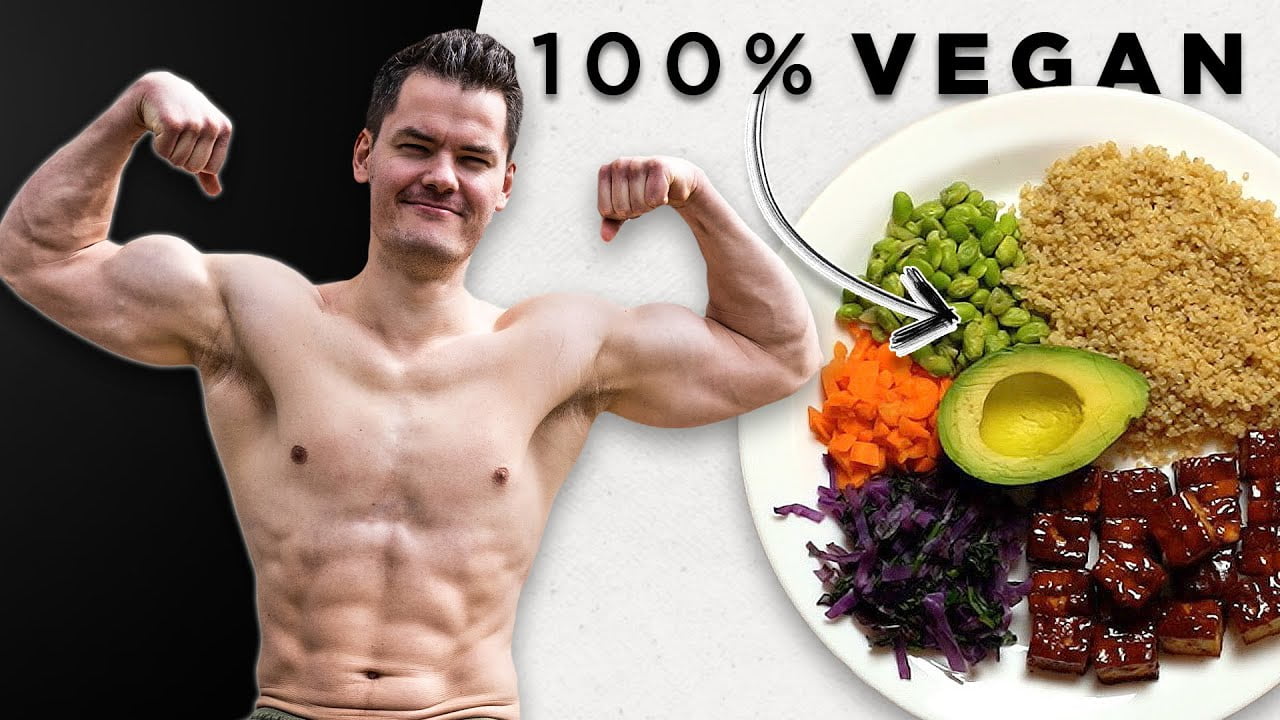In the pursuit of building lean vegan muscle, understanding the intricate balance of nutrition is paramount. This guide breaks down the essentials, offering insights into crafting a muscle-building meal tailored to vegan dietary preferences. So, let’s dive in and explore the key components necessary for achieving your muscle-building goals.
The Foundation: Calories, Protein, and Volume
When embarking on the journey of muscle building, three fundamental factors demand attention: calories, protein, and volume. These elements serve as the cornerstone for optimizing muscle growth while adhering to a vegan lifestyle.
1. Calories: Fuel for Muscle Growth
Calories play a pivotal role in facilitating muscle growth, operating under the principle of a caloric surplus. It’s imperative to consume slightly more calories than expended daily to provide the body with the necessary energy for optimal muscle synthesis.
2. Protein: The Building Blocks of Muscle
Protein stands as the primary building block for muscle tissue. Ensuring an adequate intake of amino acids is essential to stimulate muscle protein synthesis effectively. Plant-based protein sources are abundant and offer a diverse array of options to meet protein requirements.
3. Volume: Finding the Balance
While prioritizing calorie and protein intake, striking a balance with meal volume is crucial. Meals should provide satiety without overwhelming the digestive system, allowing for efficient nutrient absorption. Incorporating micronutrient-rich foods is vital to meet daily vitamin and mineral needs without excessive volume.
Crafting Your Plate: A Detailed Approach
Let’s dissect the components of a muscle-building meal, examining each section to understand its significance in supporting vegan muscle growth.
1. Main Protein Source: Tofu Delight
Tofu emerges as a star player in vegan muscle-building meals, offering versatility and ample plant-based protein. Marinated in a homemade Thai peanut sauce and air-fried, tofu delivers both flavor and nutrition. Aim to allocate a significant portion of your plate to the main protein source, ensuring a substantial protein intake to fuel muscle development.
2. Micronutrient Section: Fortifying with Fruits and Veggies
Fruits and vegetables form the micronutrient-rich foundation of the meal, contributing essential vitamins and minerals. Cooking vegetables can reduce volume while preserving nutritional value, optimizing nutrient density without compromising on taste. Incorporating edamame and other nutrient-dense foods enhances both protein content and micronutrient profile.
3. Calorie Bulk: Avocado, Quinoa, and Beyond
Boosting calorie intake without sacrificing nutritional quality involves strategic additions like avocado and quinoa. These nutrient-dense foods provide a substantial calorie boost while contributing essential nutrients and plant-based protein. Homemade sauces, such as Thai peanut sauce, offer flavor and calorie density, enhancing the overall meal experience.
Avoiding Common Pitfalls: Meal Mistakes to Avoid
Despite the focus on muscle-building nutrition, certain pitfalls can hinder progress if overlooked. Let’s explore common mistakes and their implications for vegan muscle builders.
1. Excessive Caloric Density: Striking a Balance
While calorie-dense foods like sauces and fats are beneficial for meeting caloric goals, over-reliance can lead to unintended consequences. Balancing calorie density with nutrient density is essential to avoid excessive weight gain and maintain optimal health.
2. Volume Overload: Finding Equilibrium
Overloading meals with low-calorie, high-volume foods may impede calorie intake and hinder muscle growth. While vegetables are nutrient-rich, excessive volume can limit caloric surplus, hindering muscle-building efforts. Striking a balance between volume and caloric density is key to maximizing muscle gains.
Conclusion: A Blueprint for Vegan Muscle Building Success
In summary, achieving lean vegan muscle growth necessitates a comprehensive approach to nutrition. By prioritizing calorie, protein, and volume management, individuals can optimize their dietary choices to support muscle development effectively. Crafting well-balanced meals that prioritize nutrient density while accommodating caloric needs is essential for sustainable progress on the journey to vegan muscle-building success.
Remember, individual nutrition needs may vary based on factors such as body composition and activity levels. Experimentation and adaptation are key to finding the optimal meal plan that aligns with your personal goals and preferences.
For further guidance on building lean vegan muscle, explore our ultimate plant-based nutrition guide, linked in the description below. Thank you for joining us on this journey toward a stronger, healthier vegan lifestyle.
